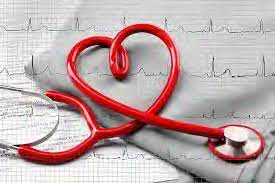It’s Valentine’s Day, so thoughts naturally turn to matters of the heart. And at Critical Link, that means matters of cardiovascular technology.
That technology is ultra-critical, especially when we consider that heart disease is the leading cause of death in the U.S., and few of us will be exempt from experiencing heart-related illness for ourselves and/or for those we care about.
One of the more interesting articles I came across was from Digital Authority Partners, an online marketing services organization (of all things!) that last fall published a very thoughtful high level look at “9 Cardiovascular Health Technologies Doctors Should Know.”
The technologies they focused on are not those that we specifically associate with matters of the heart, but I found it useful to see their perspective. The first technologies they cite are big data and AI “used to detect and predict cardiovascular diseases.”
As it turns out, big data models can predict the likelihood that a patient will develop a cardiovascular disease by looking at clinical, genomic and lifestyle data through disease correlations, drug side effects, and genome research.
One study they looked at reported that “big data can correctly predict the likelihood of a person developing cardiovascular disease in 80% of cases.” Some of the predictive factors are pretty obvious: smoking and weight have long been associated with heart disease, and it didn’t take big data to tell us that. Still, this is good news, in that big data’s more refined predictive capability means that physicians can focus on prevention.
Overall, AI is increasingly used as a diagnostic tool, and will increasingly be used to provide better treatment and outcomes as well.
It’s hard to see the word “blockchain” and not make an association with crypto, but there’s more to it than that. In the healthcare world, blockchain protocols will “make digital transactions [involving patient data] faster and more secure” – and easier to share. Health records are often held in disparate systems, which can make diagnosis and treatment inefficient and error-prone.
Since the first “I’ve fallen and I can’t get up” ads appeared, we’ve been aware that voice technologies can save lives. Now we have Alexa, which has “skills” (apps) designed for specific purposes, including one created by the American Heart Association that lets you ask Alexa “to walk you through the steps of CPR…[and to] help users recognize heart attack and stroke victims.” There are plenty of other skills that can help prevent heart disease.
Then there are chatbots, which we typically associate with customer support, but which could also be used to gather health information that help doctors make decisions.
Since lack of fitness is closely associated with cardiovascular disease, Digital Authority points to the potential of mobile gamified (and other m-health) apps that get people moving and lessen the likelihood of their developing heart-related diseases. They also take a quick look at telemedicine, telemonitoring, and “text-messaging interventions.” Interesting to note that “99% of text messages sent by physicians are opened [and] 90% of those are read less than 3 minutes after they are received by patients.” Sounds like a truly effective way to communicate.
Again, this was all pretty high level, but I thought the approach of looking largely at macro technologies and their use was pretty interesting.
And, certainly, other articles I saw underscored the importance of digital health when it comes to cardiovascular diseases. In 2022, the NIH’s National Center for Biotechnology Information looked at a number of studies focused on the use of digital technology when it comes to coronary artery disease and heart failure. They’re optimistic that even seemingly small applications – like one that reminds someone to take their meds – can lead to better outcomes. Other articles I scanned showed reason to be optimistic.
I’ll end with the words of the American College of Cardiology’s former president, Dipti Itchhaporia, MD, who says “If done correctly, digital transformation holds the answers to the future of cardiovascular care and … truly transforming cardiovascular care and improving heart health for all.”
On Valentine’s Day, here’s hoping that the digital transformation of cardiovascular care will be “done correctly.” As an engineer, I like to think that it will be.
